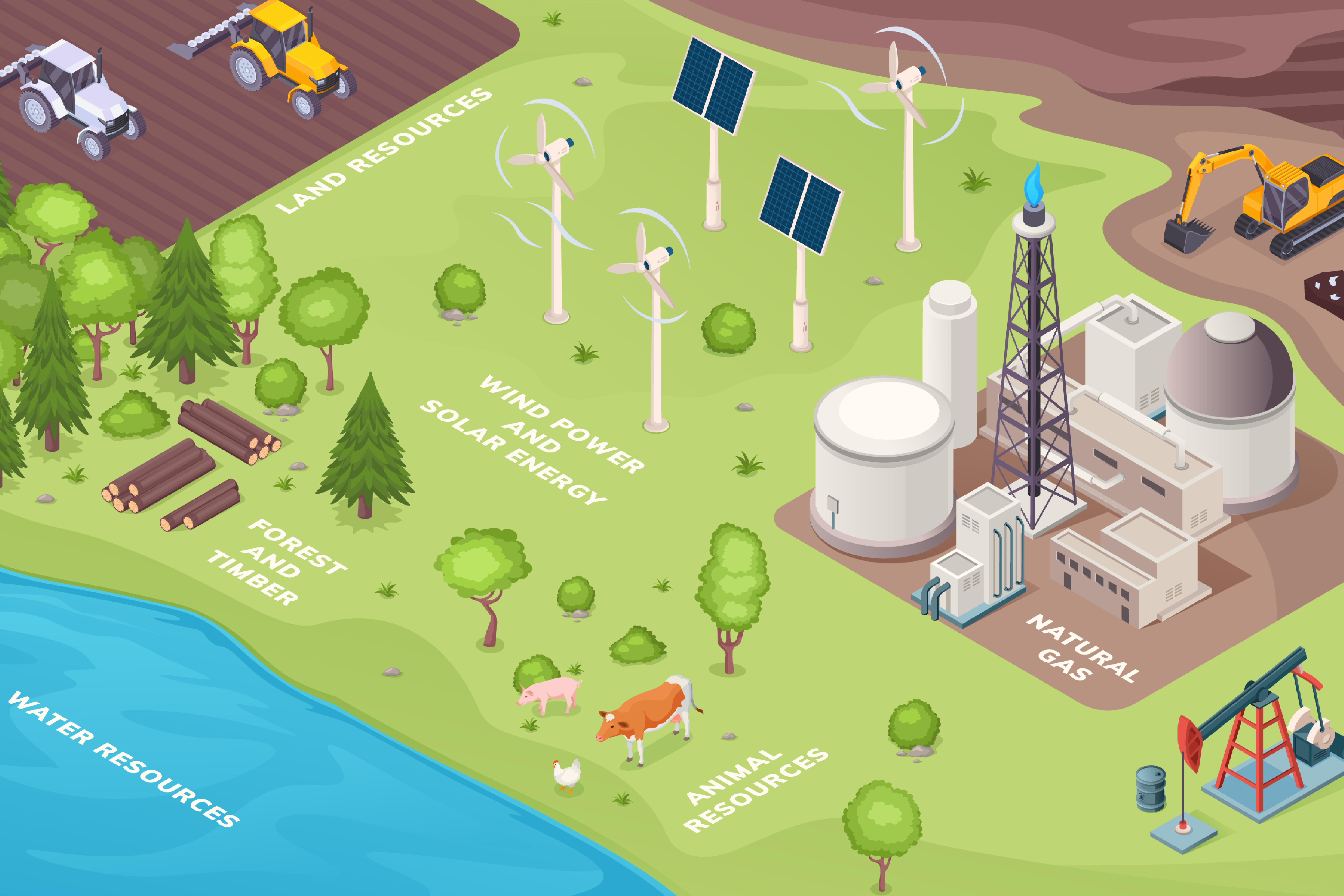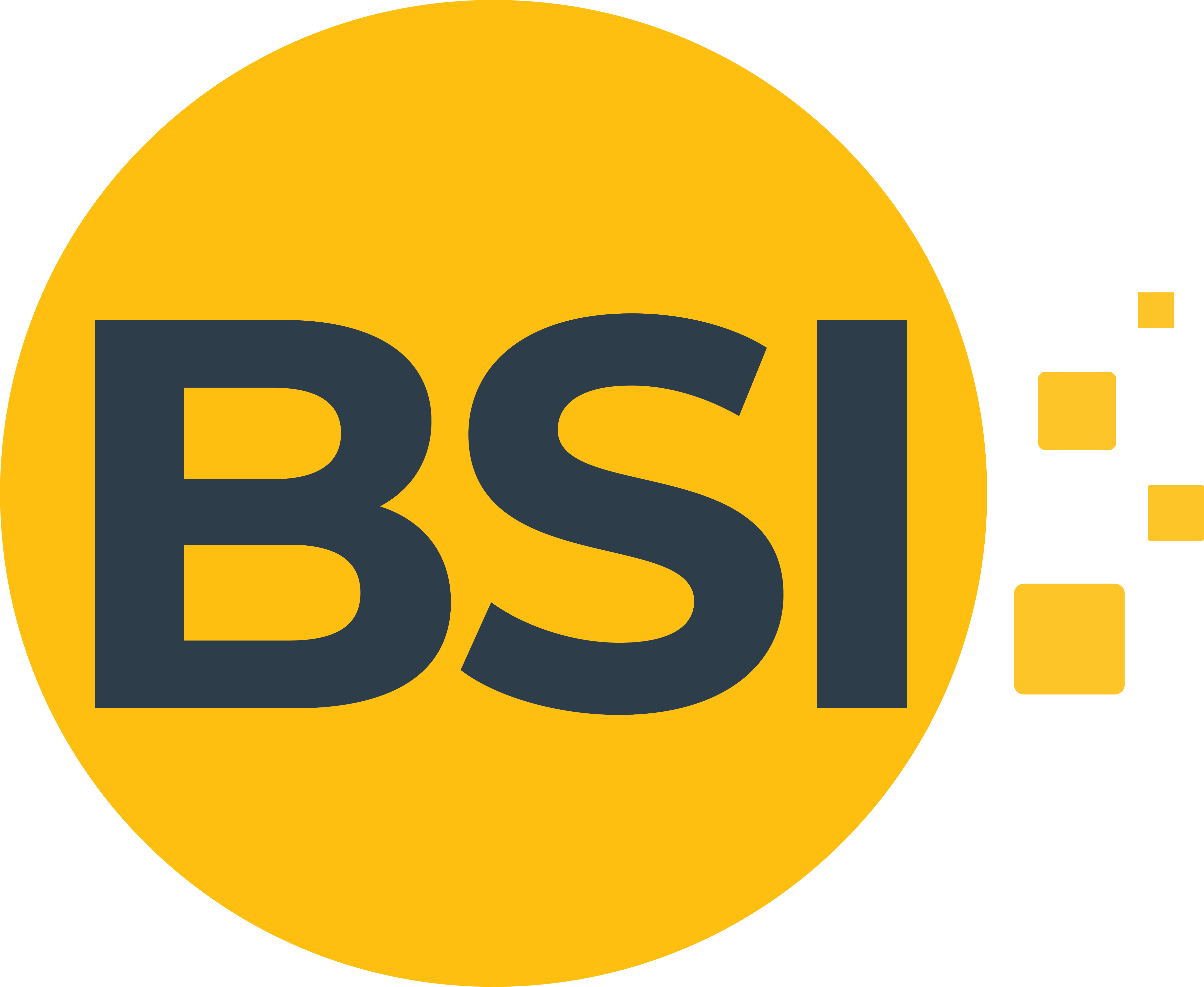
BSI- 13/2/2024
Top 5 Business Use Cases of Blockchain
Blockchain operates on a decentralized network of computers (nodes), eliminating the need for a central authority or intermediary to validate transactions. This decentralization enhances resilience, security, and transparency by distributing control and decision-making across the network. Once recorded, data on the blockchain cannot be altered or deleted. Each block in the blockchain is linked to the previous one through cryptographic hashes, creating an immutable chain of blocks that ensures the integrity and trustworthiness of the data. Blockchain provides transparency by making all transactions visible to participants in the network. Each participant has access to the entire transaction history, enabling greater visibility into the flow of data and assets. Blockchain has potential benefits for most of businesses. Here are top five business use cases of blockchain.
Business Use Case of Blockchain in Supply Chain Industry

Transparency and Traceability:
One of the most significant benefits of blockchain in supply chain management is its ability to provide unprecedented transparency and traceability. By recording every transaction and movement of goods on a tamper-proof ledger, blockchain enables stakeholders to track the journey of products from raw materials to the end consumer. This transparency ensures authenticity, reduces the risk of counterfeit goods, and builds trust between suppliers, manufacturers, distributors, and consumers. Hence Blockchain technology can be proved as perfect for supply chain business.
Improved Efficiency and Cost Savings:
Blockchain technology streamlines supply chain processes, reducing inefficiencies and costs associated with manual record-keeping, paperwork, and intermediaries. By automating documentation, verification, and compliance processes, blockchain improves the efficiency of inventory management, order fulfillment, and logistics. This efficiency translates into cost savings for businesses, as they can optimize inventory levels, minimize delays, and mitigate the risk of errors or discrepancies.
Enhanced Quality Control and Compliance:
With blockchain, businesses can ensure quality control and compliance throughout the supply chain by recording relevant data such as product origin, manufacturing processes, and certifications on the blockchain. This transparent record-keeping enables stakeholders to verify the authenticity and compliance of products, ensuring they meet regulatory standards and ethical requirements. Blockchain also facilitates real-time monitoring and alerts for any deviations or anomalies in the supply chain, enabling proactive intervention to address issues before they escalate.
Supply Chain Finance and Risk Management:
Blockchain technology enables innovative supply chain finance solutions such as supply chain financing and trade finance. By tokenizing assets and leveraging smart contracts, businesses can unlock liquidity, optimize working capital, and mitigate counterparty risk in supply chain transactions. Blockchain-based supply chain finance solutions provide greater transparency and trust between buyers, suppliers, and financial institutions, reducing the dependency on traditional banking channels and enhancing access to capital for businesses.
Sustainability and Ethical Sourcing:
Blockchain can play a crucial role in promoting sustainability and ethical sourcing practices in supply chains. By recording environmental, social, and governance (ESG) data on the blockchain, businesses can track the sustainability credentials of products, verify responsible sourcing practices, and ensure compliance with ethical standards and regulations. This transparency empowers consumers to make informed purchasing decisions and incentivizes businesses to adopt more sustainable and ethical supply chain practices.
Healthcare and Potential Business Use Case of Blockchain

Secure and Interoperable Health Records:
One of the most promising applications of blockchain in healthcare is the creation of secure, interoperable health records. Blockchain enables the creation of a decentralized, immutable ledger system where patient health data can be securely stored and accessed by authorized healthcare providers. By leveraging blockchain, patients have greater control over their health data, while healthcare providers benefit from a single source of truth, improved data accuracy, and streamlined interoperability between disparate systems.
Enhanced Data Security and Privacy:
Blockchain technology offers unparalleled security and privacy features that can help protect sensitive healthcare data from unauthorized access, tampering, or breaches. By encrypting health data and storing it on a distributed network of nodes, blockchain ensures data integrity and confidentiality, reducing the risk of data breaches and compliance violations. Patients can trust that their health information remains private and secure, while healthcare providers can access and share data securely, leading to improved patient outcomes and trust in the healthcare system.
Streamlined Claims Processing and Billing:
Blockchain simplifies and accelerates claims processing and billing in healthcare by automating manual tasks, reducing administrative costs, and mitigating fraud. Smart contracts, powered by blockchain technology, enable automated verification and settlement of insurance claims based on predefined rules and conditions. This automation streamlines the reimbursement process, minimizes errors, and improves cash flow for healthcare providers and insurers, ultimately enhancing efficiency and reducing administrative overhead.
Drug Traceability and Supply Chain Management:
Blockchain technology enhances drug traceability and supply chain management in the pharmaceutical industry by providing an immutable record of drug manufacturing, distribution, and authentication. With blockchain-based systems, stakeholders can track the journey of pharmaceutical products from the manufacturer to the end consumer, ensuring authenticity, reducing counterfeit drugs, and improving patient safety. This transparency and traceability enable faster recalls, regulatory compliance, and supply chain optimization, ultimately benefiting patients and healthcare providers.
Research Data Sharing and Collaboration:
Blockchain facilitates secure and transparent sharing of research data and collaboration among healthcare institutions, researchers, and pharmaceutical companies. By recording research findings, clinical trial data, and intellectual property rights on the blockchain, stakeholders can securely share and access information, accelerate the pace of medical innovation, and improve patient care. Blockchain-powered research networks foster collaboration, data sharing, and knowledge dissemination, leading to breakthroughs in treatment, drug development, and disease prevention.
How Blockchain Can Be Useful For Real Estate Industry

Streamlined Property Transactions:
Blockchain technology simplifies and accelerates property transactions by providing a secure and transparent platform for recording and verifying ownership rights, title deeds, and transfer of property. Through blockchain-based property registries, buyers and sellers can streamline the conveyancing process, reduce paperwork, and minimize the risk of fraud or disputes. This transparency and efficiency translate into faster, more cost-effective property transactions, benefiting both parties involved.
Fractional Ownership and Tokenization:
Blockchain enables the fractional ownership and tokenization of real estate assets, allowing investors to purchase and trade fractional shares of properties represented as digital tokens on blockchain-based platforms. This democratization of real estate investment opens up new opportunities for retail investors to access previously inaccessible markets, diversify their portfolios, and participate in high-value real estate assets. Tokenization also enhances liquidity, as investors can buy and sell fractional shares of properties more easily, without the need for traditional intermediaries.
Smart Contracts for Real Estate Transactions:
Smart contracts, powered by blockchain technology, automate and enforce the terms of real estate agreements without the need for intermediaries such as lawyers or escrow agents. These self-executing contracts ensure that transactions are executed only when predefined conditions are met, eliminating the risk of fraud, reducing transaction costs, and expediting the closing process. Smart contracts can be used for various real estate transactions, including rental agreements, property sales, and lease agreements, streamlining processes and enhancing trust between parties.
Transparent Property Valuation and Data Management:
Blockchain technology facilitates transparent property valuation and data management by providing a secure and immutable record of property transactions, ownership history, and market data. Real estate professionals can leverage blockchain-based platforms to access accurate and up-to-date information, conduct due diligence, and make informed decisions about property investments. This transparency and data integrity enhance market efficiency, reduce information asymmetry, and mitigate risks associated with inaccurate or unreliable property data.
Real Estate Crowdfunding and Peer-to-Peer Lending:
Blockchain-powered platforms enable real estate crowdfunding and peer-to-peer lending, allowing individuals to invest in real estate projects or provide funding for property transactions directly to borrowers without the need for traditional financial institutions. These platforms use blockchain technology to tokenize real estate assets, facilitate investment transactions, and distribute dividends or interest payments to investors in a transparent and efficient manner. Real estate crowdfunding and peer-to-peer lending democratize access to real estate investment opportunities, empower individual investors, and unlock capital for property developers and borrowers.
Blockchain Use Case in Fintech Sector

Enhanced Security and Transparency:
At the core of blockchain technology lies its unparalleled security and transparency features. By utilizing decentralized, cryptographic consensus mechanisms, blockchain ensures the integrity and immutability of financial transactions and data. Fintech companies leverage blockchain to enhance security measures, mitigate fraud risks, and provide transparent, auditable records of financial activities. This level of security and transparency instills trust among users, fostering greater adoption of fintech solutions. Blockchain is the best technology for finance business.
Efficient Cross-Border Payments:
Traditional cross-border payment systems are often slow, costly, and prone to errors. Blockchain technology offers a solution to these challenges by enabling fast, low-cost, and secure cross-border transactions. Fintech companies leverage blockchain-based payment networks to streamline international remittances, improve liquidity management, and reduce settlement times. This use case of blockchain in fintech enhances financial inclusion, empowers individuals and businesses in underserved regions, and unlocks new opportunities for global commerce.
Decentralized Finance (DeFi):
Decentralized finance, or DeFi, represents a paradigm shift in the way financial services are delivered and accessed. Built on blockchain technology, DeFi platforms offer a wide range of financial services, including lending, borrowing, trading, and asset management, without the need for traditional intermediaries such as banks. Fintech companies are embracing DeFi to democratize access to financial services, eliminate barriers to entry, and create innovative, permissionless financial products and protocols.
Smart Contracts and Automation:
Smart contracts, powered by blockchain technology, automate and enforce the terms of agreements without the need for intermediaries. Fintech companies leverage smart contracts to automate various financial processes, including loan origination, insurance claims processing, and trade settlement. This automation reduces manual errors, speeds up transaction times, and lowers operational costs. Smart contracts also enable programmable money, allowing for the creation of complex financial instruments and automated investment strategies.
Tokenization of Assets:
Blockchain enables the tokenization of real-world assets, such as stocks, bonds, real estate, and commodities, transforming them into digital tokens that can be traded on blockchain-based platforms. Fintech companies are exploring the potential of asset tokenization to increase liquidity, fractionalize ownership, and democratize access to investment opportunities. Tokenized assets offer greater transparency, divisibility, and interoperability, paving the way for a more efficient and inclusive financial ecosystem.
Blockchain and its Use Case in Energy Sector

Renewable Energy Trading:
One of the most promising applications of blockchain in the energy sector is facilitating peer-to-peer (P2P) trading of renewable energy. With blockchain-enabled platforms, individuals and businesses can buy and sell excess energy generated from renewable sources such as solar panels or wind turbines directly to their neighbors or other consumers. This decentralized energy trading model bypasses traditional energy utilities, reduces transaction costs, and promotes the adoption of renewable energy sources, ultimately contributing to a more sustainable and resilient energy ecosystem.
Grid Management and Optimization:
Blockchain technology offers innovative solutions for grid management and optimization, enabling real-time monitoring, control, and coordination of energy resources. By integrating blockchain with smart grid technologies, utilities can optimize energy distribution, balance supply and demand, and manage grid congestion more effectively. Smart contracts executed on the blockchain can automate grid operations, facilitate dynamic pricing mechanisms, and incentivize energy conservation and efficiency measures, leading to a more efficient and reliable energy infrastructure.
Decentralized Energy Marketplaces:
Blockchain-based energy marketplaces empower consumers to participate in decentralized energy markets, where they can buy, sell, or exchange energy based on their preferences and needs. These marketplaces utilize blockchain technology to transparently record energy transactions, verify asset ownership, and settle payments in real-time. By democratizing access to energy markets, blockchain enables greater competition, innovation, and consumer choice, driving down costs and fostering a more inclusive and resilient energy economy.
Energy Traceability and Certification:
Blockchain provides a transparent and immutable record of energy production, consumption, and carbon emissions, enabling greater traceability and accountability throughout the energy supply chain. With blockchain-based energy tracking systems, consumers can verify the provenance and sustainability credentials of the energy they consume, ensuring it comes from renewable sources and meets environmental standards. This transparency fosters trust between energy producers, consumers, and regulators, facilitating the transition to a low-carbon energy future. Hence Blockchain technology can be proved as perfect for energy business sector.
Microgrids and Energy Communities:
Blockchain technology facilitates the creation of microgrids and energy communities, where localized energy generation and distribution systems operate independently or in coordination with the main grid. By leveraging blockchain, participants in microgrids and energy communities can securely trade energy, share resources, and coordinate grid operations without relying on centralized authorities. This decentralized energy model enhances resilience, reduces dependency on traditional utilities, and fosters community empowerment and self-sufficient.
Why Business Software India is Best as a Blockchain Company
Proven Track Record:
Business Software India has a proven track record of success, having delivered numerous successful blockchain projects for clients around the globe. From startups to Fortune 500 companies, BSI has earned reputation for excellence and reliability, earning the trust and loyalty of their clients through our commitment to delivering superior results.
Client-Centric Approach:
At Business Software India, client satisfaction is paramount. BSI takes a client-centric approach to every project, working closely with clients to understand their unique requirements, goals, and challenges. By fostering open communication and collaboration, BSI ensures that each blockchain solution is aligned with the client’s vision and delivers measurable results that exceed expectations.
Commitment to Quality and Security:
Security is a top priority for Business Software India. BSI adheres to industry best practices and rigorous quality standards to ensure the reliability, integrity, and security of our blockchain solutions. BSI ensures that our solutions are robust, scalable, and resistant to vulnerabilities, providing clients with peace of mind and confidence in their technology investments.


Recent Comments